
Komal Jhaveri, MD, FACP, discusses unmet needs for patients with breast cancer, as well as ways to address these needs through discussion and collaboration.

Your AI-Trained Oncology Knowledge Connection!


Komal Jhaveri, MD, FACP, discusses unmet needs for patients with breast cancer, as well as ways to address these needs through discussion and collaboration.

Shanu Modi, MD, discusses updated survival data from the phase 3 DESTINY-Breast04 trial evaluating fam-trastuzumab deruxtecan-nxki in patients with HER2-low metastatic breast cancer.
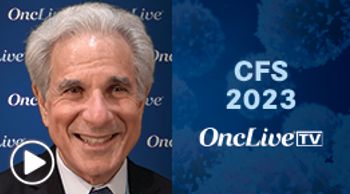
Howard I. Scher, MD, discusses the evolution of molecular testing mechanisms in patients with prostate cancer and highlights the importance of making patient-centered decisions based on test results.
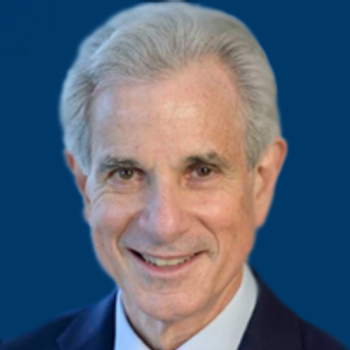
Howard I. Scher, MD, sheds light on various research programs he has led or has been heavily involved with that have helped change the course of prostate cancer treatment over the years.
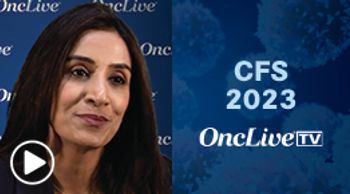
Komal Jhaveri , MD, FACP, discusses the rationale behind the ongoing clinical development of elacestrant and other endocrine therapies in patients with estrogen receptor–positive metastatic breast cancer.
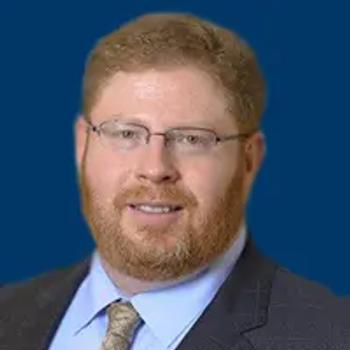
The combination of enfortumab vedotin-ejfv plus pembrolizumab represents a chemotherapy-free regimen that could alter the standard of care in the frontline treatment of all patients with metastatic urothelial carcinoma.

Research has continued to focus on developing novel therapies and bringing new treatments to the sarcoma treatment paradigm.
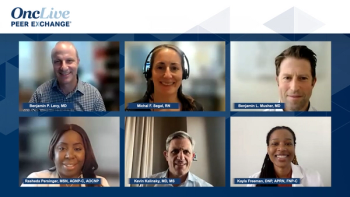
The expert panel discusses TROP2 as a target for patients with cancer who are receiving antibody-drug conjugates.

A review of antibody-drug conjugates approved for treatment of patients with breast, lung, or gastrointestinal cancers.

Kathryn C. Arbour, MD, discusses the unique mechanism of action of RMC-6236, the preliminary efficacy and safety findings for this agent in patients with KRAS-mutant NSCLC, and future directions for the RMC-6236-001 trial.
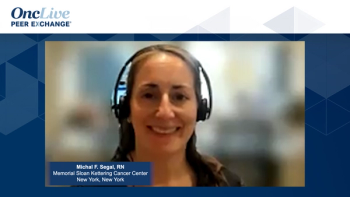
Insights on managing antibody-drug conjugate toxicities for patients with gastric cancer.

A GI medical oncologist discusses the role of trastuzumab deruxtecan in the gastric cancer treatment space.

Zenocutuzumab elicited clinical activity with a tolerable safety profile in patients with advanced non–small cell lung cancer harboring NRG1 fusions, including those with prior afatinib exposure, according to findings from the ongoing, phase 1/2 eNRGy trial.
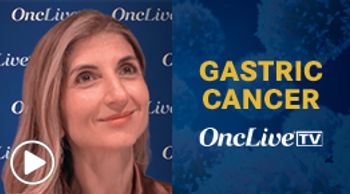
Yelena Y. Janjigian, MD, discusses results from the primary progression-free survival and interim overall survival analyses of the phase 3 KEYNOTE-811 trial in patients with HER2-positive metastatic gastric or gastroesophageal junction adenocarcinoma, and contextualizes these findings with previously reported data from this trial.
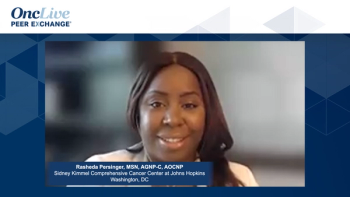
A nurse practitioner provides insights on toxicity management strategies for patients with lung cancer who are receiving antibody-drug conjugates.
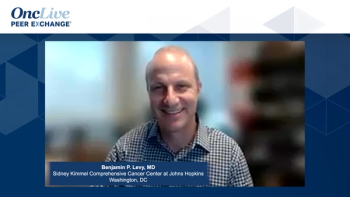
A medical oncologist reviews the antibody-drug conjugate landscape in lung cancer.
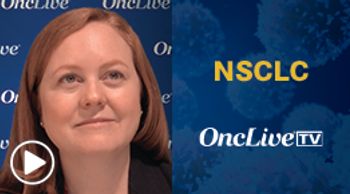
Kathryn C. Arbour, MD, discusses preliminary safety and efficacy data with the RAS inhibitor RMC-6236 in patients with KRAS-mutated non–small cell lung cancer.

The combination of bezuclastinib and sunitinib had a tolerable safety profile and demonstrated early signals of clinical activity in patients with gastrointestinal stromal tumor.

Sacituzumab govitecan-hziy led to modest but durable antitumor activity with predominant gastrointestinal toxicities in patients with metastatic or locally recurrent head and neck squamous cell carcinoma who received between 1 and 3 prior lines of therapy.

The addition of pembrolizumab to combination of trastuzumab and chemotherapy led to an improvement in progression-free survival vs placebo plus trastuzumab and chemotherapy in the first-line treatment of patients with metastatic HER2-positive gastric or gastroesophageal junction cancer, particularly in those whose tumors had a PD-L1 combined positive score.

Specialists in breast cancer review toxicity management practices for T-DM1 and trastuzumab deruxtecan [T-DXd].
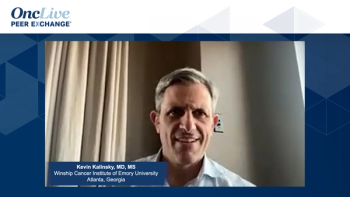
A breast medical oncologist provides insights on antibody-drug conjugates in the breast cancer space and discusses ongoing research.
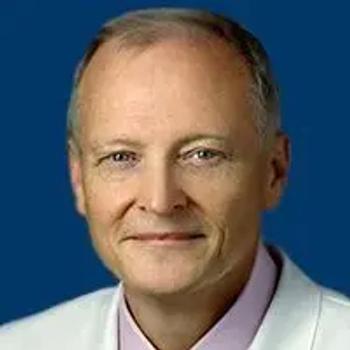
OncLive® and The Ruesch Center for the Cure of Gastrointestinal Cancers at Georgetown Lombardi Comprehensive Cancer Center in Washington, DC, have announced the winners of the 2023 Luminary Award in GI cancers.

Andrew Laccetti, MD, MS, discusses results from a phase 1 trial of masofaniten monotherapy in patients with metastatic castration-resistant prostate cancer and highlights the rationale for launching a phase 1/2 study evaluating masofaniten in combination with enzalutamide vs enzalutamide alone in this patient population.

The expert panel has a comprehensive discussion about best practices for patient education and the barriers to effective testing.

Medical oncologists review the complexities of molecular testing, including tissue exhaustion, and discuss management approaches.

Comprehensive insights on biomarker testing practices for patients with lung or gastrointestinal cancers.

A breast medical oncologist and nurse practitioner review molecular testing practices for patients with breast cancer.
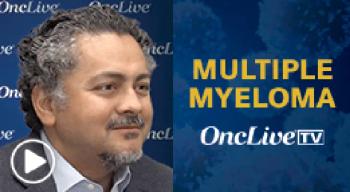
Saad Z. Usmani, MD, MBA, FACP, discusses the complexity of approaching frontline treatment decisions in patients with high-risk multiple myeloma.
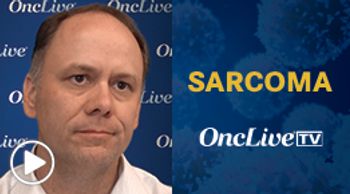
Damon R. Reed, MD, discusses the genetic differences that distinguish Ewing sarcoma from osteosarcoma, as well as unmet needs in patients with these diseases.